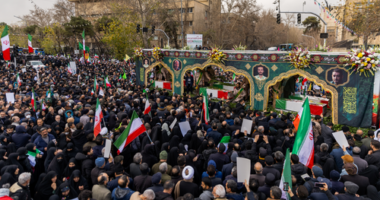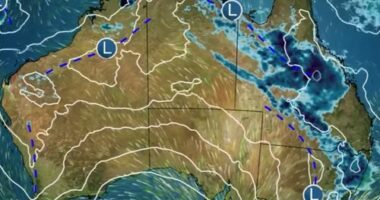Share this @internewscast.com
Iran’s airspace, and Israel’s main airport, Ben Gurion International, are both closed “until further notice”.

Israelis at the site of an Iranian missile strike in Bnei Brak, Israel, on Monday. Source: Getty, NurPhoto / Gili Yaar
Ron Gelberg arrived in Israel shortly before the conflict escalated and had planned to holiday there as part of an international trip.
He said he would have preferred to have been repatriated from Tel Aviv. He acknowledged the difficulties the Australian government may face in organising such flights amid missile fire, but believed they could have offered assistance getting to Jordan and repatriating from there.
Fears among Australia’s Iranian community: ‘Her voice was shaking’
The journey to what Asal called a “safer city where there are not many military bases” took her mother more than 12 hours, with traffic gridlocked for hundreds of kilometres out of Iran’s capital, Tehran.

Asal says Australians with family stuck in Iran are feeling “helpless” as prospects of repatriation remain uncertain. Source: SBS News
Many of the Iranian capital’s nearly 10 million residents have either left the city or taken shelter indoors as Israeli airstrikes continue to pound major cities across the country for six consecutive days.
Iranian officials said at least 224 people have been killed, mostly civilians, and another 1,200 injured in the recent strikes. Israel says 24 civilians have been killed in attacks by Iran.
“People are trying to reach people, but you can’t contact people online and you can’t call.”

Rescuers workers at a site that was struck by an Israeli strike in Iran’s capital, Tehran, on Tuesday. Source: AAP, EPA / Iranian Red Crescent Society
Government ‘working very closely’ with stranded Australians
“It’s a perilous place, the Middle East right now, it’s a perilous time for the global economy.”











